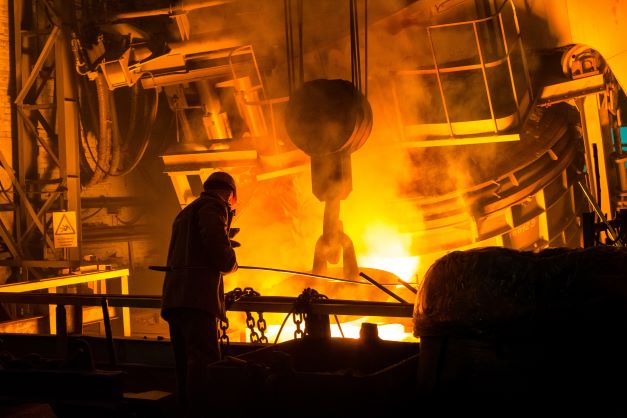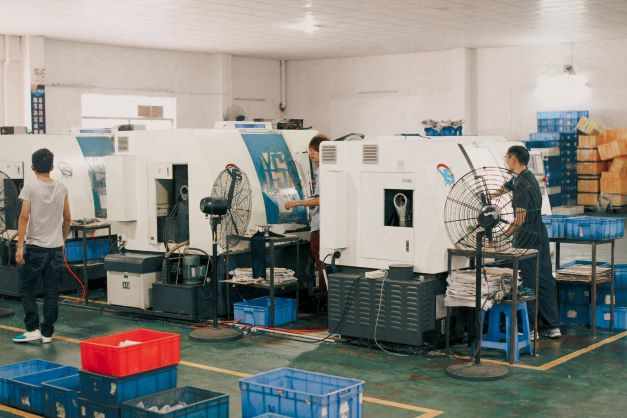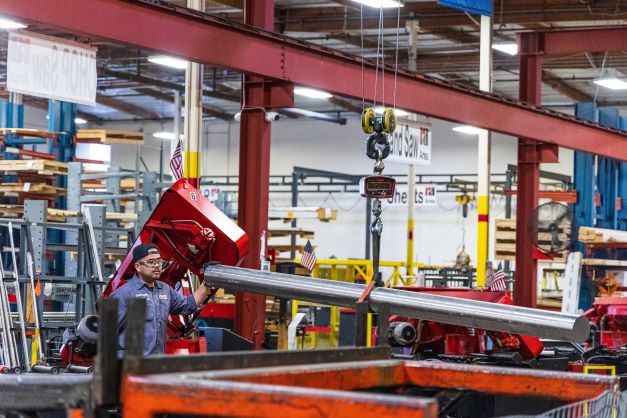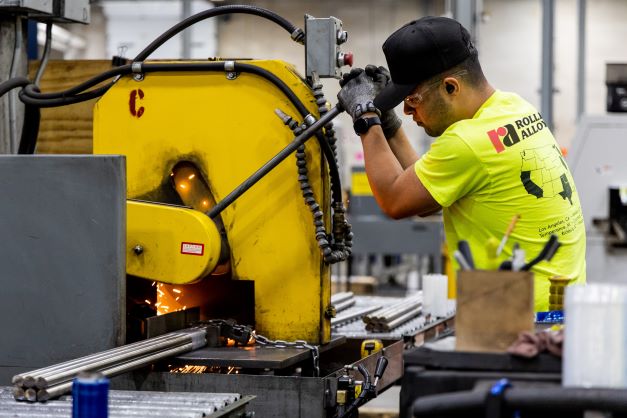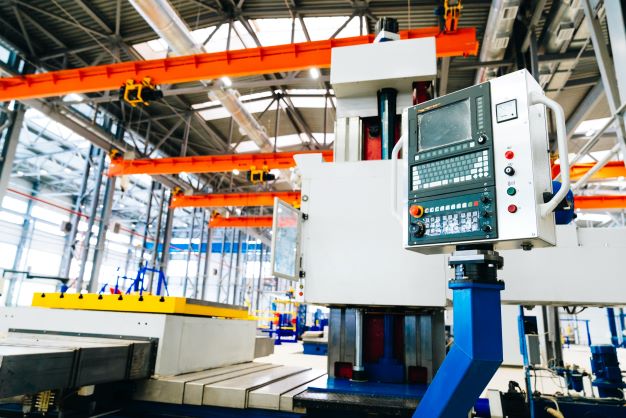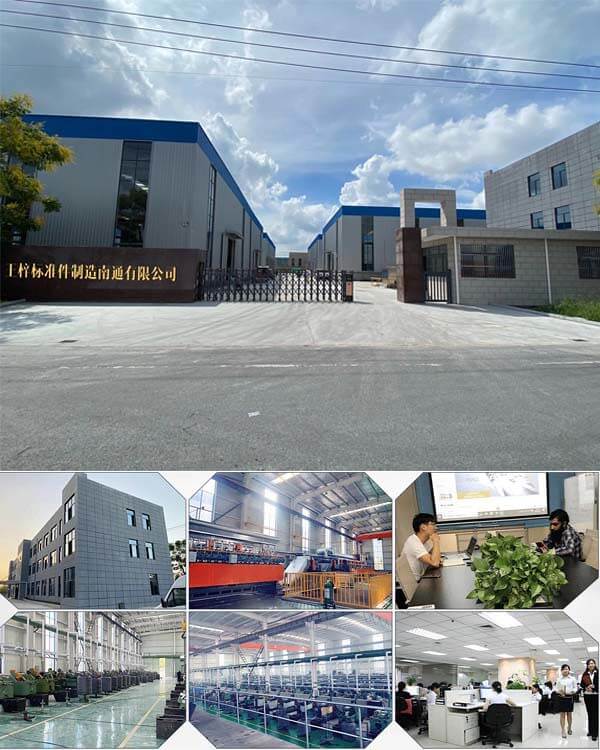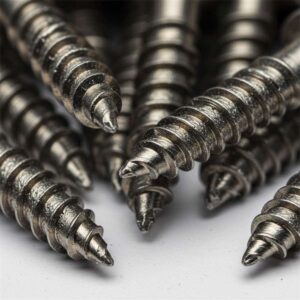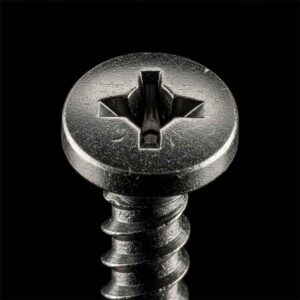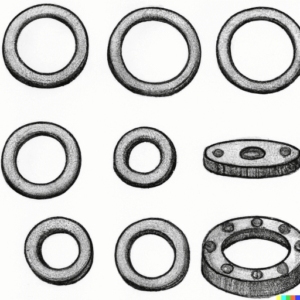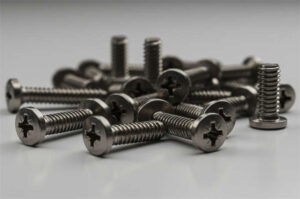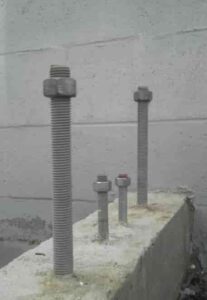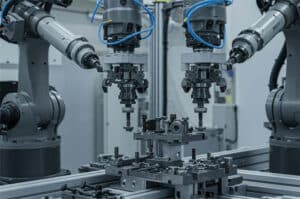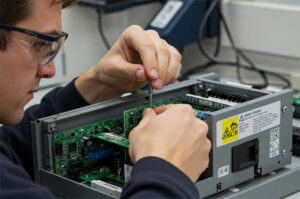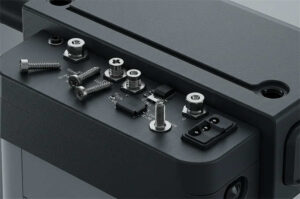How Are Fasteners Created?
In modern technology of production methods, many steps are taken in innovating the highest quality of fastener products. In every principle of differentiating the specified functionality of fasteners, the manufacturing process is classified into cold forming, hot forming, and machining. These steps are taken to adapt and meet the demands of industrial applications.
Differentiating the kinds of production processes:
Machining
Machining is the mechanical engineering of manufacturing and assembling materials together, often a form of metal that collectively undergo a process. Since the invention of technology in the evolving world, machining processes have improved from traditional to advanced. Traditional machining includes principal processes (turning, drilling, milling) and miscellaneous categories (boring, broaching, sawing, shaping, planning, reaming, and tapping) which use machine tools that shape the fastener materials.
Conventional machine tools: lathes, milling machines, drill presses, sharp cutting tools, etc.
Advanced machining techniques: CNC machining, electrical discharge machining (EDM), electro-chemical machining (ECM), laser cutting, water jet cutting
Turning – is the operation of rotating materials in a lathe machine to shape and cut the materials into the desired dimension. Latches are the principal cutting tool that is used in workpieces during the turning process.
Milling – are operation wherein milling machines rotate at a high-speed rate for multiple cutting edges. This process allows the formation of special curves and straight lines in a workpiece. Milling machines have rotary cutters that cut materials in speed into a desired final shape.
Drilling – operations that are done through drill presses, lathes, or mills. This method is performed to remove materials from the inside of a workpiece with a rotating cutter to produce a hole. Drilling machines perform processes such as drilling, reaming, lapping, boring, counter-boring, counter-sinking, Spot facing, and tapping.
Machining is commonly done in manufacturing fasteners that have intricate specifications. This method is preferable for applications of bolts and nuts that have critical requirements. Most fastener manufacturers use machining techniques in the acquisition of machinery facilities for their control in production and to support the needs of industries dependent on them.
Cold Forming
Cold forming, also known as cold working in metallurgy, is a process of shaping metals below recrystallization temperature to realize the elements of materials. The forming of metal materials in cold temperatures allows them to have enhanced features like tensile strength and corrosion resistance. Cold-forming is a preferable choice of process for manufacturing large quantities of bolts, nuts, and other fasteners. It also offers a cost-effective manner in high-speed process and comparable results to hot forming. Fasteners fabricated in cold forming produce a greater yield, high tensile strength, hard features, and a superior finish.
Four major cold forming techniques and their types:
Squeezing
- cold rolling
- cold forging
- Extrusion
- Coining
- Swagging
- Sizing
- Riveting
- Staking
- Burnishing
- Thread rolling
- Peening
Bending
- Angle bending
- Roll bending
- Draw and compression
- Roll forming
- Seaming
- Flanging
- Straightening
Drawing
- Wire drawing
- Tube drawing
- Metal spinning
- Embossing
- Stretch forming
- Sheet metal drawing
- Ironing
- Superplastic forming
Sharing
- Sheet metal shear-cutting
- Slitting
- Blanking
- Piercing
- Lancing
- Perforating
- Notching
- Nibbling
- Shaving
- Trimming
- Cutoff
- Dinking
The advantage of the cold forming process is having an increased strength of the fasteners in controlled dimension, better surface finish, corrosion resistance, reproducibility, and more. Cold-forming is also a low-cost option in production because of the less time required yet mass-producing capacity in manufacturing.
Hot Forming
Hot Forming is also known as hot working and is another processing of metals that are plastically deformed above recrystallization temperature. It includes the methods of hot rolling, hot spinning, extrusion, forging, drawing, and rotary piercing. An important aspect to maintain during a hot forming process is to control the temperature of the workpiece to have a desirable deformation of materials.
The advantages of hot forming are having a decrease in yield strength making it an easier piece for installation of the fastener products, increased ductility, lighter components, high formidability of materials, good dimensional stability, and suitability in all steel components.
While the main disadvantages of the process are scaling or rapid oxidation of the workpiece, less precise tolerances, burr formation, the possibility of components warping, and variation in the grain structure of the metal.
Hot rolling – is a contrast to cold rolling wherein metal components are passed through rolling mills to reduce the thickness and make a uniform property.
Hot spinning – also known as metal spinning, is the process of metalworking in which metals are spun at a high speed by hand or by a CNC lathe. The method doesn’t involve removing an element of the metal but forming or molding the material into an existing shape.
Extrusion – is a metal working process of keeping the metal from strain hardening for an easier way to push it into the die. Its main advantage in the manufacturing process is the ability to work with brittle elements and create an excellent finish. The extrusion process also allows the material to be formidable in freedom to design the desired dimension.
Forging – from the word itself forging is the process of shaping materials into the desired final product such as fasteners. Forging can be classified by the type of temperature in the process, it can be hot forging or cold forging.
Drawing – is the process of thinning out a metal wire into the necessary thickness. The metal working method uses tensile forces to draw out and stretch components such as metal, glass, or plastic.
Rotary piercing – is another hot metal working process consisting of two types; the Mannesmann process and the Stiefel process. Rotary piercing performs the formation of thick-walled seamless tubing.
The classifications of the production of fasteners are complex in variations hence it aims to convert the materials into their best quality and purpose. With the practice of innovating excellent fastener solutions, many of the fastener suppliers cater to the standard customization needs of every industrial sector.
How to Choose the Best Quality Fasteners?
With the wide range of variations of fasteners many considerations and problems, one might encounter in choosing the right product, especially with its quality. Fasteners are widely used in industries and it is a crucial device for forming solutions and security. With almost every product around us that a fastener can be used for building, more people should be knowledgeable of the factors in choosing the right fasteners.
Here are some of the key points to consider in finding the best quality fasteners.
What is the right type of fastener?
There are many types of fasteners with different functions and purposes. The most common types are screws, bolts, nuts, washers, pins, rivets, anchors, rods, etc. Screws and bolt fasteners include different kinds of heads. The choices range from flat, oval, round, pan, hex, hex washer, truss, button, and socket cap. There are an equally diverse number of nut types, including hex, cap, acorn, jam, flange, square, tee, torque lock, K-lock, slotted, coupling, and castle. Bolts and nuts are fasteners that go together as partners in application to execute the best hold and security in surfaces and materials.
Each type of fastener has standard parts and quality that can be customized accordingly to specifications. It’s important to know the right modification of the fastener you need because it will affect the performance in installation and grip on the surface.
The most common fasteners are screws that come in different types and functions. (How are screws made?) Screws are useful materials for securing and joining surfaces together with a feature of drill bit ends which allows easy installation. Some of the common types of screws include self-drilling screws, self-tapping screws, chipboard screws, wood screws, concrete screws, and custom screws.
Where is the fastener being used?
Choosing the right fastener types should start with considering the kind of application. Every product in today’s world requires a fastening material that differs in quality for its suitable function. Bigger industries like automotive, agriculture, infrastructure, construction, aerospace, military, chemical plants, and more require critical fasteners that have corrosion resistance to elements that may damage the products. While minor applications that require less essentiality like woodworking, metal sheets, kitchenware, indoor shelves, furniture, toys, and more will need standard fasteners. Another important factor is to consider the environmental demands in an application, some areas require salt water and chemical resistance, which is why coating and finishing on fasteners are implemented in the process.
What coating is best suitable for the application?
Fastener coating and finishing are factors that contribute best to the overall performance of the product. They provide an enhanced feature of strength, resistance to corrosive materials, and a clean finish or appearance of fasteners. Some various types of coatings include plain finish, zinc plated, zinc & clear chromate, zinc & yellow chromate, hot dip galvanizing (HDG), class 3, cadmium plated, decorative finish, brass, bronze, chrome, or nickel plated, electro galvanized, grey phosphate, and ceramic coated. They are classified into high-quality and low-quality finishing which depends on the requirement of surface and environment applications.
What’s the right material?
The selection of the right material is a vital step in choosing the best quality of fasteners. Most fasteners are either made in standard materials or specifications of elements to suit the required properties in the installation. The commonly known materials and other components for producing fasteners are steel, aluminum, brass, copper, nickel (Monel and Inconel), stainless steel (martensitic, austenitic, ferritic), titanium, beryllium, and nylon. These materials offer different performances and characteristics for the production of fasteners. There are also various grades of the materials to consider for choosing suitable usage in surfaces of application.
What size and length should be considered?
With the complex features and characteristics of fasteners, sizes also play a vital role in determining the quality of fasteners. In every application, the right size in diameter will be needed to be determined in accuracy to operate a successful fastening. Standard sizes are available in most fastener suppliers and manufacturers, and customizable lengths are dependable on the type of service that the company can provide.
Where to source your fasteners?
A highly recommended fastener company that can cater to fastening solutions of every industry application is Prince Fastener Manufacturing Co., Ltd. Located in the leading country that manufactures the best quality of fasteners, they also have extensive knowledge and experience in the market sector of the fastener industry. Not only that, but they also comply with multiple international standards to ensure excellent service and the highest quality of products they can provide. Moreover, Prince Fastener offers the exportation of their fastener products in worldwide logistics with the promise of delivering to the required specifications of orders.
Lists of reliable fastener suppliers worldwide:
- Top 10 Fastener Suppliers and Manufacturers in China
- Top 10 Fastener Suppliers and Manufacturers in the USA (United States of America)
- Top 10 Fastener Suppliers and Manufacturers in the UK (United Kingdom)
- Top 10 Fastener Suppliers and Manufacturers in Brazil
- Top 10 Fastener Companies in UAE (United Arab Emirates)
- Top 10 Fastener Companies in Saudi Arabia (Kingdom of Saudi Arabia)
- Top 10 Fastener Companies in Russia
- Top 10 Fastener Companies in Chile
Many professional fastener companies are everywhere around the globe, you just have to find the best supplier that can offer sustainability and be reliable in service to the demands.
Where Can I Get a Low-Price Nut and Bolt From China?
China is one of the leading countries that manufactures and supplies fasteners worldwide. Best to believe there is more than to expect from fastener companies in China that can provide excellent service to cater project requirements and demands in industries.
Fasteners are known for their use and functionality in joining materials and providing surface security. There is a wide range variety of fasteners that are manufactured accordingly to specifications in an application. Bolts and nuts are one of the most common and important fasteners that can provide tremendous strength of hold. The two fasteners are different from each other but cannot be applied without the other. Bolts are threaded rods with different types of head and threading in shank while nuts are circular metals with internal opposite thread to bolts for them to fit together when both are tightened in installation.
With the variability of types, bolts and nuts come in diverse fabricated materials which are among the factors that can affect their cost in the market. When materials and specifications of production methods are characterized in manufacturing bolts and nuts they are likely to be more expensive than the standard fasteners. Most fasteners made in the standard processes are highly preferable for budget costing but certain modifications for ensuring the best quality and effectiveness of the bolts and nuts are most recommended. Naturally, many fastener companies in China can offer a low cost of bolts and nuts because of the wide demand in different industry applications, sourceable resources, and materials, established technology in innovative solutions, and the principle to lead the development of a better world.
Thousands and an increasing number of fastener suppliers are fastener suppliers growing in manufacturing different types and qualities of fastener materials every day. Some of these companies have a brilliant management system and are outstanding service providers to their clients and customers. We have compiled some of the renowned fastener manufacturers and suppliers in China that can provide many fastening solutions in different industry applications.
Top 10 Fastener Suppliers and Manufacturers in China
- Hangzhou Lizhan Hardware Co., Ltd
- Ningbo Yi Pian Hong Fastener Co., Ltd
- Prince Fastener Manufacturing Co., Ltd
- Hisener Industrial Co., Ltd
- Shanghai TopKun Industry Co., Ltd
- Jiaxing Qimu Trading Co., Ltd
- Yangzhou XIYI Fasteners Co., Ltd
- Suno Group Limited
- Ningbo Taida Fastener Manufacture Co., Ltd
- Ningbo Sunrise Fasteners Co., Ltd
The fastener industry innovates modern requirements of bolts and nuts nowadays. Some important features that should be considered in choosing the perfect fastener include specification of usage, components of the material production, durability, the threading of shaft, length, resistance to corrosive elements, weight, reusability, installation process, temperature or environment of exposure, and types of material it will be attached to. Many considerable features should be taken in precision but most manufacturing companies provide the technicality of the products to ensure the success of fastening materials they supply.
How to Start Up My Nut & Bolt Manufacturing Business?
Bolts and nuts are widely used in many sectors nowadays, making them a necessity in building materials or fastening surfaces. The demand for bolts and nuts in different industries is a huge factor that makes them a profitable business venture. It is best advised to understand the mechanical background and processes when starting up a manufacturing venture of bolts and nuts. Most entrepreneurs should be aware of the important points and related attributes concerning the business of fastener bolts and nuts.
Considerable aspects of the bolt and nut manufacturing business
- Raw Material Suppliers
Raw materials are one of the crucial components in the manufacturing business. They are the starting key point of the production of fasteners, especially bolts and nuts. Without sustainability of raw materials, it is likely to have a failure to meet the production in quantity and reliability. Some of the established fastener companies have succeeded in supplying their production of raw materials while others rely on sourcing them from other manufacturing businesses. Either way, it is important to establish a sustainable quality of raw materials to ensure the best outcomes of your venture.
Raw materials come in variations of kinds such as steel, aluminum, brass, copper, nickel (monel and Inconel), stainless steel (martensitic, austenitic, ferritic), titanium, beryllium, and nylon.
2. Machinery
There is a wide range of manufacturing machinery in bolts and nuts. The need for proper machinery and technology is important to fabricate the fasteners to achieve a successful manufacturing management system.
Some of the known fastener-making machines used by fastener manufacturers are cutting machines, thread-making machines, steel wire drawing machines, CNC clamps, press machines, and many more.
3. Workshop space
A manufacturing facility, warehouse, or factory is another essential for a manufacturer of bolts and nuts. This is where the production line takes place and exhibits the fabrication of the fasteners in quality.
4. End-Customer Market
For a business venture to succeed it is a significant necessity to determine your target market and business sector. In the mechanical process of manufacturing bolts and nuts, many industries rely on fasteners for their purpose and function. The important note to consider will be to regulate the end customer market of your manufacturing business. When sustaining other businesses, private sectors, government, niche industries, and end consumers or retailers are some of the choices for the matter.
Target industries and markets of bolts and nuts: construction, electronic, petrochemical plants, railways, building & construction, infrastructure, aerospace, military, agriculture, and other heavy and light industries
5. Marketing Plan
When you have determined your target market, the marketing plan will shortly come next. The marketing plan for fastener products is made more effortless with the innovation of new technologies that help in conveying awareness to your brand. You have to analyze the target market of your business whether it will be your town, region, whole country, or globally.
There will be further minor factors that can affect the startup of your bolts and nuts manufacturing business. Land, electricity, capital, workforce, the scale of profitability, and licenses are some of the things that also need to be filled into consideration. When you have proper licenses and legality your company is more able to flourish because the certifications will guarantee that you have passed certain requirements.
Licenses required: Trade license for local municipal authorities, MSME and SSI registration, Factory license, NOC by state pollution control board, GST registration, PAN, Aadhar card
Accomplishing all of the requirements for establishing a manufacturing company of bolts and nuts will take a lot of effort and time. Some fastener companies are also known to source their products from reputable manufacturers and suppliers. This is an option almost always available to fastener manufacturers in China. Many professionals are offering OEM, ODM, and private labels to enterprises and businesses that are not capable of establishing a warehouse factory. It’s a great opportunity for starting small and skipping the other steps of technicality in production.
Want to know more about OEM, ODM, and private labels? Contact Prince Fastener Manufacturing Co., Ltd now. We offer the service of providing you with the solutions and technicalities of the related matter.
